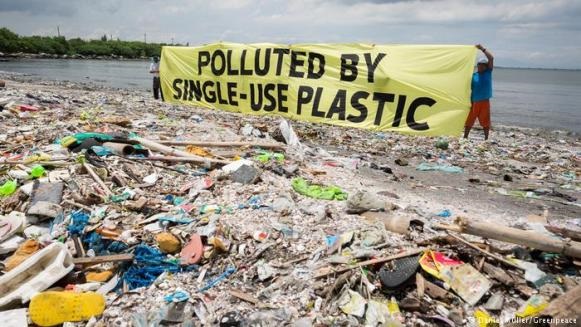Germany’s Federal Ministry for the Environment, Nature Conservation and Nuclear Safety (BMU) says it is supporting the “Prevention of Marine Pollution in the Caribbean” (PROMAR) project with €4.9 million.

The project is said to be one of the first approvals of the BMU funding programme against marine litter “Marine Debris Framework – Regional hubs around the globe” (Marine: DeFRAG). It is intended to help reduce plastic waste in the Caribbean Sea over the next three years.
Environment Minister, Svenja Schulze, said: “Plastic waste in the seas ends up in the food chain, affects marine ecosystems and is thus becoming a global problem. The amount of waste should be avoided directly at the source so that the waste does not end up in the sea if possible.
“Sustainable waste management is essential here. With our funding programme, Germany fulfills its special responsibility in the world: on the one hand, we are leaders in environmental technologies and processes, at the same time, we are also the industrial and domicile of international companies in the plastics economy. With our support, we are delivering on some of our commitments to the G7 and G20 action plans against marine litter.”
The Berlin company Adelphi research non-profit GmbH is behind the PROMAR project. Various measures are intended to reduce the entry of plastic waste from the Dominican Republic, Costa Rica and Colombia into the Caribbean Sea. The quantities and directions of distribution of plastic waste are to be monitored and mapped. With the help of these measurements, circular pilot solutions are then implemented.
This includes the use of solar-powered garbage collection points and bins, electric garbage collection vehicles and technical aids for calculating waste fees. In addition, the political partners in the countries are advised on the evaluation of technology options and concepts for policy making.
The solutions that have been developed are also to be used in other countries in the Caribbean and Latin America. The project thus achieves a multiplier effect and functions as a flagship project in the region. To this end, PROMAR will work together with the United Nations Environment Programme (UNEP), in particular the Cartagena Convention (Convention for the Protection and Development of the Marine Environment in the Wider Caribbean Region) and its contracting states.
‘Marine Debris Framework’ funding programme
With its Marine: DeFRAG programme, the BMU funds projects to reduce marine litter. The projects are intended to help avoid the amount of waste directly at the source, so that plastic waste does not even end up in the oceans. Cooperation are therefore funded that use tried and tested or innovative solutions to reduce the amount of plastic waste produced or to set up waste and cycle management systems to collect waste. In addition to inputs from rivers, the focus is also on coastal regions and island states that carry plastic waste into the sea.
The programme supports projects on policy advice, capacity building, technology cooperation and investment, as well as the implementation of policies and strategies. It is aimed at federal implementing organisations, non-governmental organisations, commercial enterprises, universities and research institutions, German branches of international and multilateral organisations and institutions that have a seat in Germany. The federal project management agency Zukunft – Umwelt – Gesellschaft (ZUG) gGmbH is responsible for its support.
